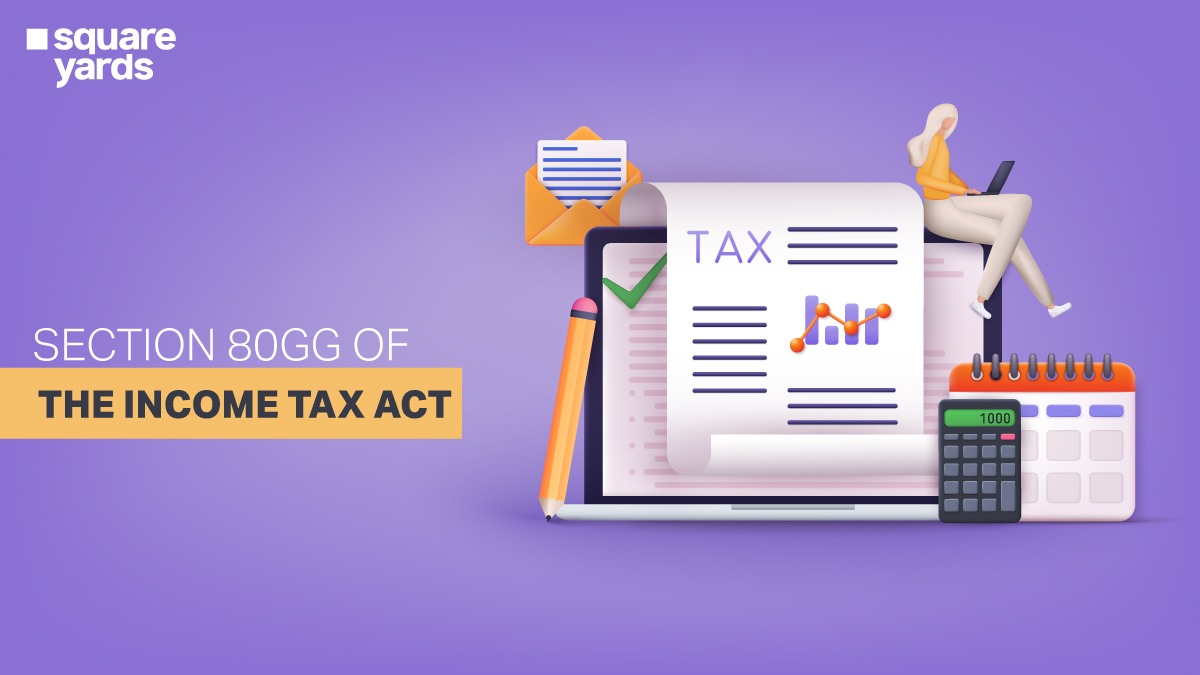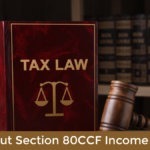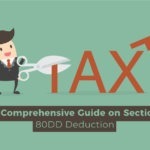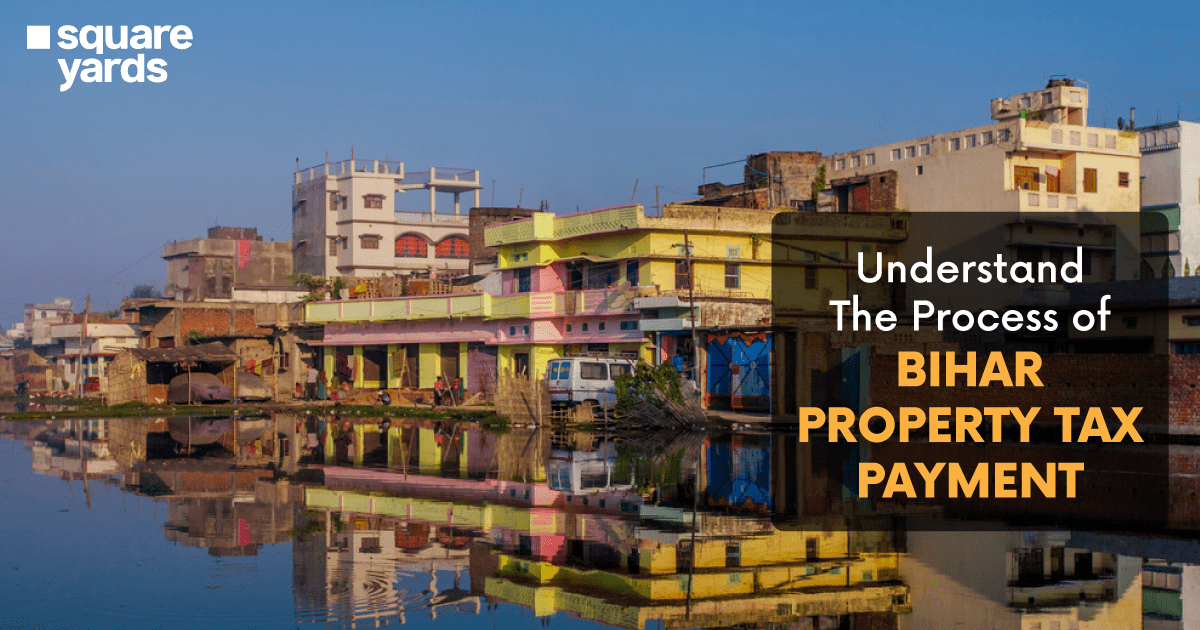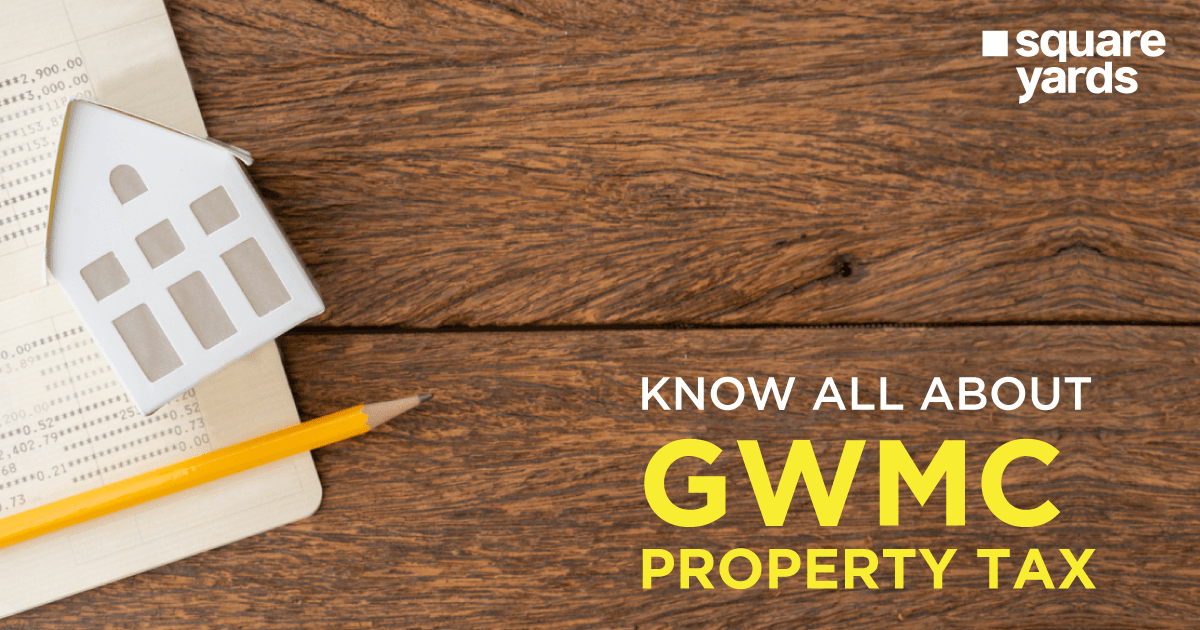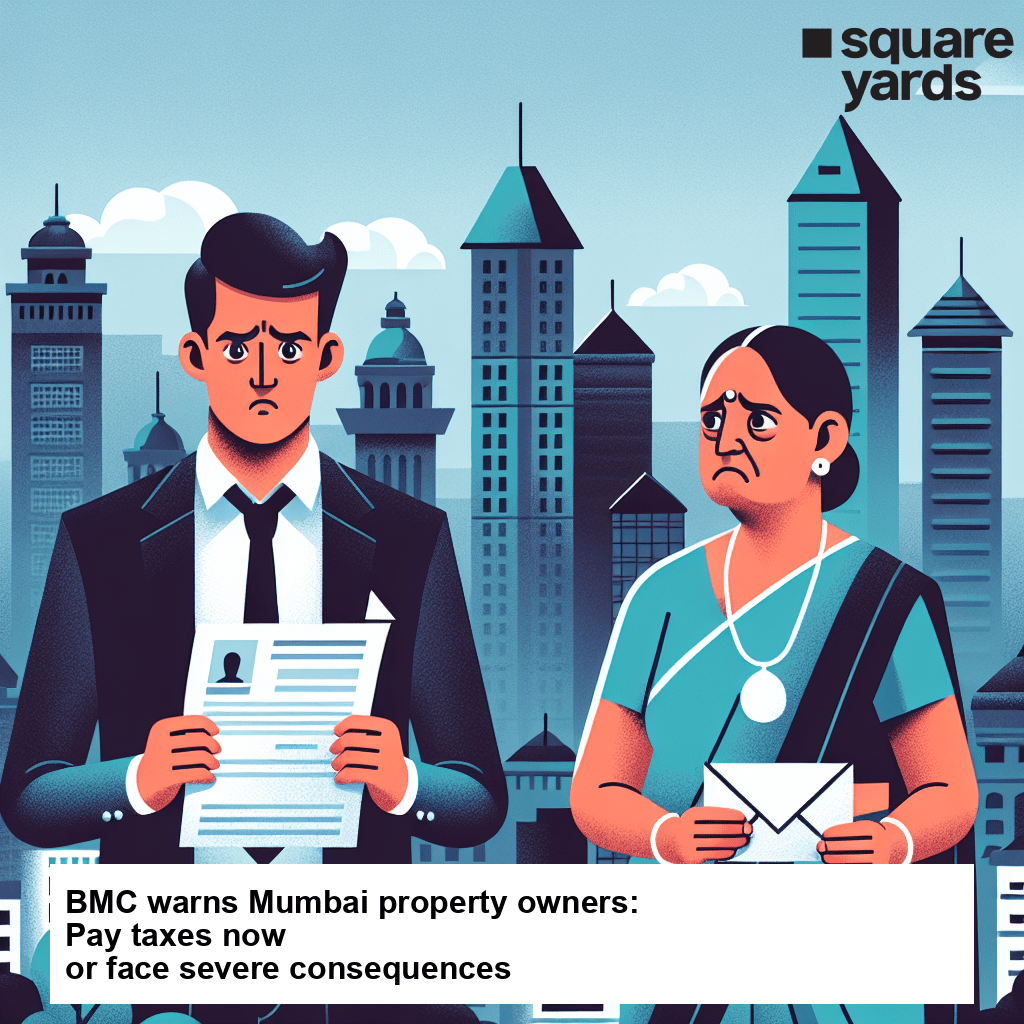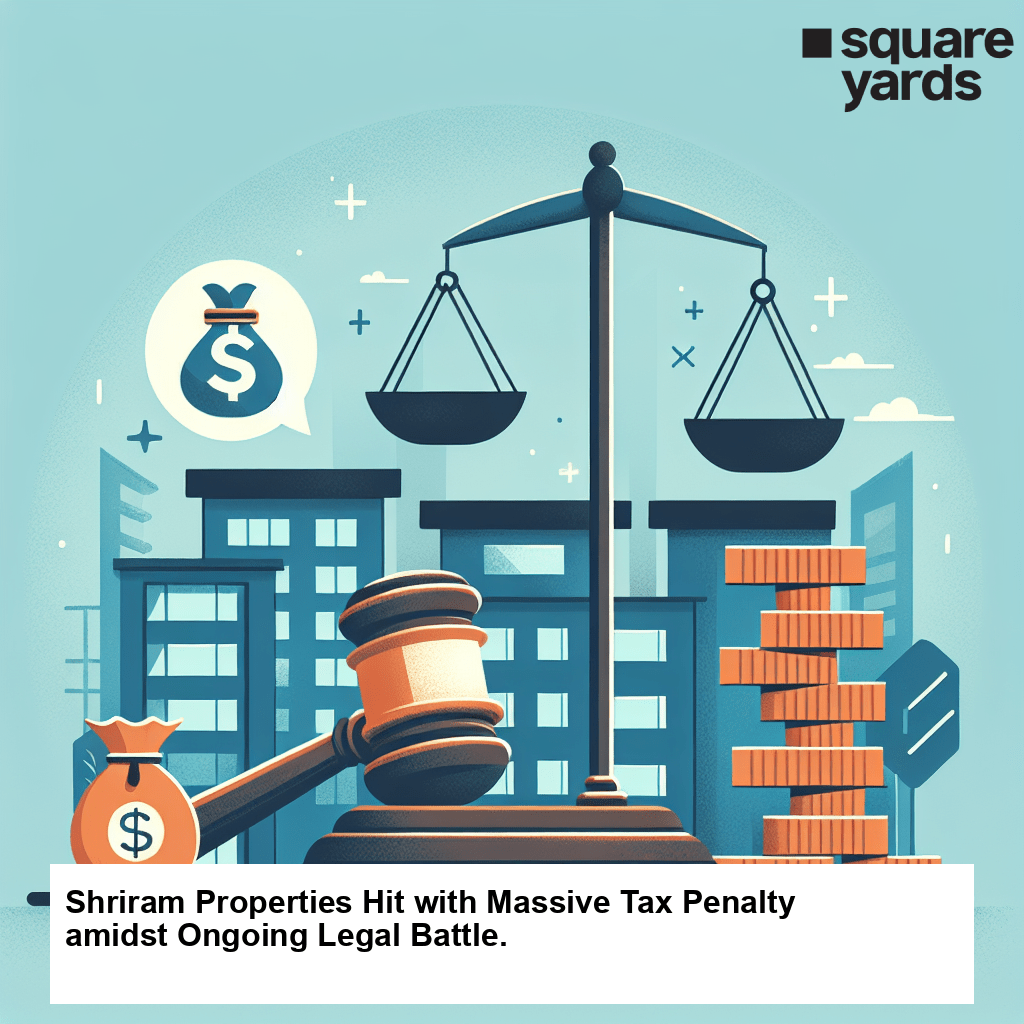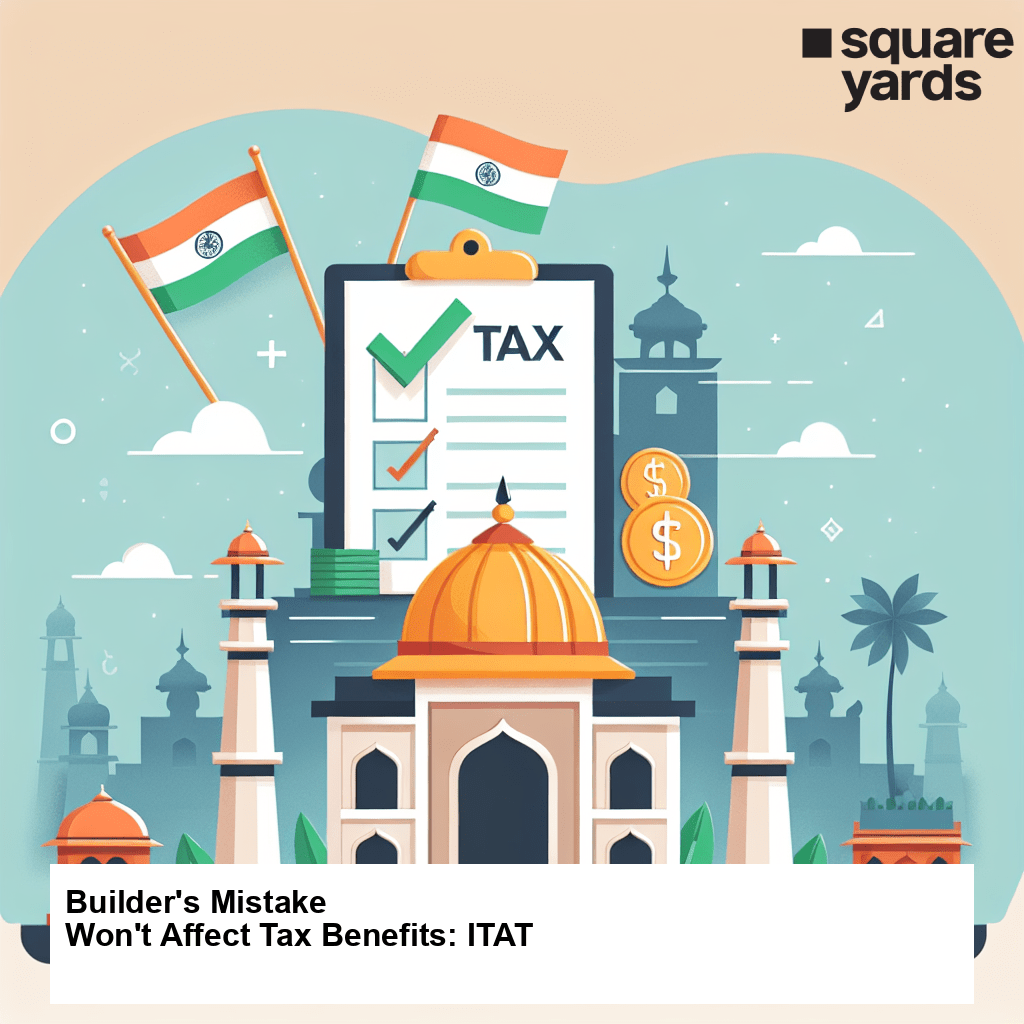The Income Tax Act of 1961 is a comprehensive statute that governs all tax rules in India. The act ensures taxes are assessed, managed, obtained, and reclaimed for the government of India accurately and prudently. The Income Tax Act contains multiple provisions for imposing taxes on income made prior as well as income about amounts not yet received.
Similarly, in 1961, the government introduced Section 80GG for Indian citizens. This section benefits those who do not get an HRA (house rent allowance) but pay rent for their stay. In this case, a person can claim an exemption for rent paid, but there are few conditions. Let’s walk through the blog to learn the rules and regulations under Section 80GG.
Section 80GG of the Income Tax Act
Section 80GG is an exception clause in section VI-A of the Income Tax Act of 1961. It gives tax relief for individuals who do not use the residence rent subsidy. According to this provision, a person must reside in a rental residence to qualify for a tax deduction. In addition, his/her company should not include a home rent allowance (HRA) in his/her monthly salary.
However, Section 80GG deductions are available to both salaried and self-employed workers. If a person owns a company, he or she can claim tax deductions under this clause. Moreover, Individuals who live on their parents’ land are also eligible for Section 80GG perks. Also, a person should sign a rental contract with their parents and pay rent to them. Further, while submitting their ITR, the paid rental sum to their parents must be chargeable and visible in the ITR.
Deductions of Amount Eligible Under Section 80GG
The minimum amount eligible for deduction under section 80GG are:
- ₹ 5,000/ month or ₹ 60,000 per year
- 25% of total revenue (exclusive of short and long-term capital gains, under sections 111A, 115A or 115D. Also an exemption under sections 80C to 80U)
- Actual rent minus 10% of gross revenue
Document Required
Some of the major documents required under section 80GG are:
- Full Name, PAN Card Number, and Address proof of the assessee
- Form 10BA
- Factors to consider Tenure, sum, and payment form
- A statement that the assessee, his spouse/minor child, and HUF doesn’t hold own any other property in the same area
- Name and location of the landlord
- Required landlord’s PAN Card, if the rent crosses ₹1 lakh
Exceptions Under Section 80GG of the Income Tax Act
To receive a deduction under clause 80GG, a taxpayer needs to fulfill the following requirements:
- Eligible to Self-employed or salaried person. The exemption is also available to Hindu Undivided Families (HUFs). However, these deductions are not available to companies.
- During the fiscal year, if you are not getting any HRA from your workplace. Still, if you claim to receive 80GG, you are not eligible for the HRA.
- If a person’s yearly rent surpasses ₹ 1 lakh, the taxpayer must provide a duplicate of the landowner’s PAN card to get approved for tax advantages.
- Candidates must submit Form 10BA to the authorities to be approved for the income tax act. This form affirms that the individual makes no claims for advantages derived from privately owned land.
- If you changed your jobs during the fiscal year and got an HRA deduction from your previous job, you are ineligible to claim a tax deduction.
Form 10BA and its Importance Under Section 80GG of the Income Tax Act
Form 10BA is a document that must be submitted by a person who wishes to claim an exemption for rent paid on a lease under provision 80GG. But, this form doesn’t give the advantage to self-occupied land within the area or workplace. Before submitting Form 10BA, the following information must be provided:
- Full House Address with Postal Code
- Full Name and PAN Card Number of the assessee
- Payment Mode
- Residency duration in months
- Total amount of Rental
- Name and full Address of the landowner
- Declaration saying that the assessee, her/his spouse or minor child does not own any other property within the same area
- PAN Card Number of the rented land’s owner is compulsory, if the total sum of rent exceeds ₹ 1 lakh in the fiscal year
How can Property Owners Claim Deductions Under Section 80GG?
A property owner can claim deductions under section 80GG, only if they meet the following two primary requirements:
- They should be paying rent regularly, where they reside.
- Applicants should not possess the land in the same city or region as their place of work office. Section 80GG will not apply to an individual if they hold personal an asset in the town but reside in a rented house.
Wrapping Up
Section 80GG considers a salaried/self-employed individual’s desire to minimise tax by requesting an exemption under this provision. It allows you to correctly plan your taxes since rent can be a significant portion of a paid person’s income. The criteria and other prerequisites for claiming advantages under this section of the law were thoroughly explained in the article.
Frequently Asked Questions (FAQ’s)
Can I claim perks under Section 80GG only if the asset is in my Father’s name?
Yes, you can claim advantages under clause 80GG if the property is in your father’s name, only if you are paying rent to him.
Can I pay rent to my parents and claim 80GG?
Yes, you can pay rent to your parents and claim a tax deduction under law 80GG.
Can homeowners claim deductions under Section 80GG?
Under Section 80GG, if the annual rent crosses ₹1 lakh, taxpayers must send an extra copy of the homeowner’s PAN card number to get eligible for tax deductions.
I have a property but live in a rented house in a different city. Can I claim deductions under Section 80GG?
Yes, you can claim a tax deduction under the clause for the rent you are paying. However, you do not hold any own house in a different city.


